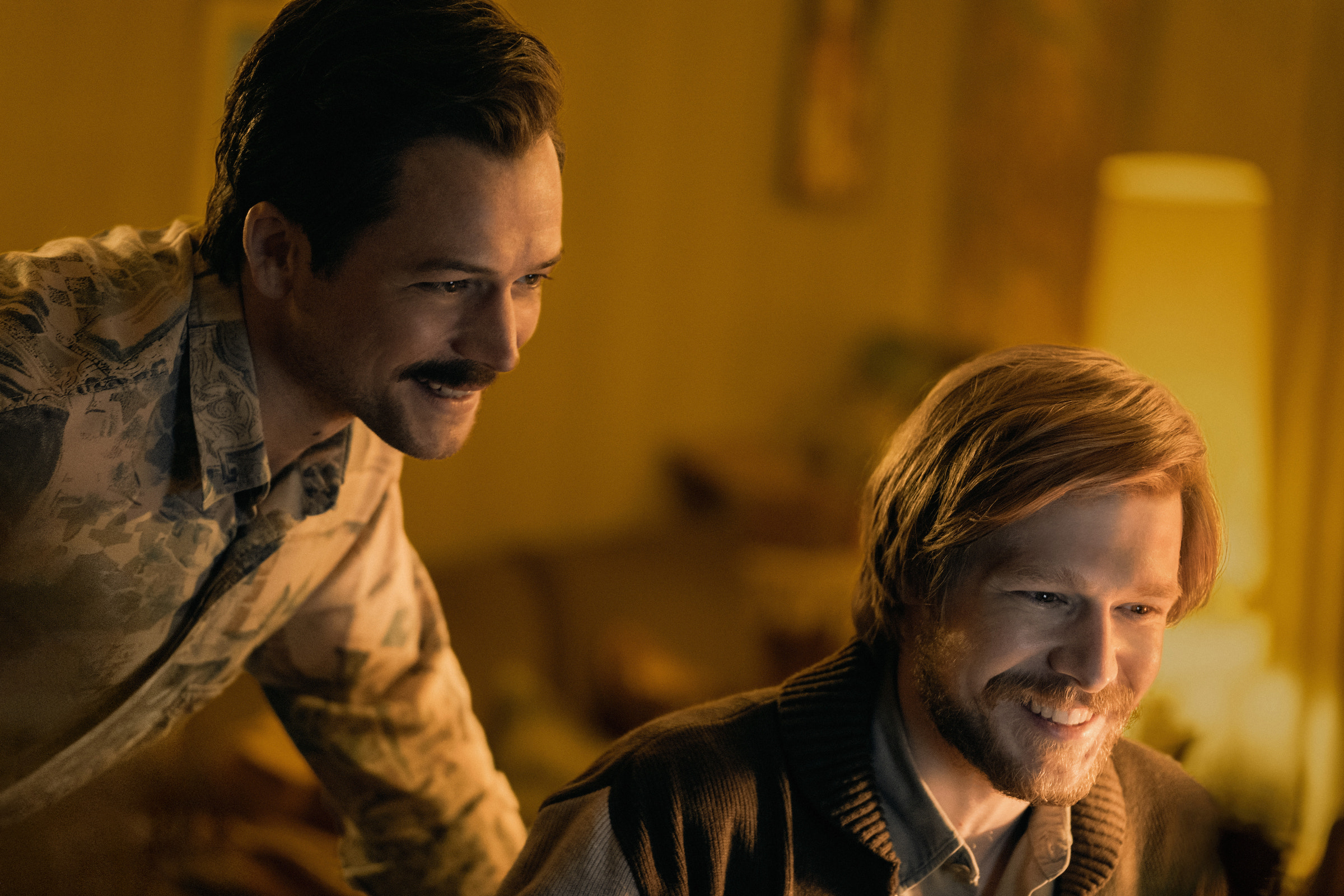If you think Tetris is a movie about the invention of the pioneering and hugely addictive video game, you’re completely right: director Jon S. Baird’s jaunty, entertaining picture traces the roots of the game to its beginnings in Soviet Moscow in 1984, the brainchild of computer programmer Alexey Pajitnov—played in the film by Nikita Efremov—who would invent little games as a way of testing the capabilities of new equipment at work. But it’s also a film about how business gets done, about the combination of wiles and integrity it takes to make an honorable deal, particularly when you’re negotiating in countries with norms and traditions you’re not familiar with. The story of Tetris the game—invented by Pajitnov but brought to the world by a Dutch-born American programmer and businessman named Henk Rogers—is one of rule breaking, of multiple double-crossings and, in the movie version at least, of danger and intrigue. That’s a lot for a game made of simple colored squares to bear, but in Tetris the movie, it all makes sense.
Taron Egerton, in an endearing porn-star mustache, plays Rogers, who falls in love with the game at a Las Vegas trade show in 1988, where he’s trying—unsuccessfully—to sell his own video game version of Go. Later, he describes his new obsession to his banker: “I played Tetris for five minutes and I still see falling blocks in my dreams.” At the trade show, he’s learned that the British video-game publisher Mirrorsoft controls the rights to Tetris on all platforms—but not in Japan, where Rogers lives with his family, and where his own company, Bullet Proof Software, is based. So he secures the rights to license the game in Japan—to be played on PCs, games consoles and in arcades, the only platforms available at the time—and thinks he’s headed for easy street.
Not so fast. As it turns out, Rogers will have to slice through a clump of tangled ribbons of red tape, involving Mirrorsoft’s owner, the not-yet-disgraced British media mogul Robert Maxwell and his almost equally odious son (played, respectively, by Roger Allam and Anthony Boyle), a wheeler-dealer businessman named Robert Stein (Toby Jones), and the Cold War-era Soviet government, represented by an individual named Nikolai Belikov (Oleg Stefan), the director of a government-owned company controlling the trade of computer hardware and software. Lost in the mix, of course, is the man who made it all possible. Pajitnov’s game had become so popular with Russian office workers that employers had to block them from playing it during work hours, but he couldn’t make a ruble off it. Tetris had become the property of the state.
Read more: The Complicated True Story Behind Apple TV+’s Tetris Movie

Watching Tetris, you’re likely to feel lost now and then, even though director Baird and screenwriter Noah Pink lay out this increasingly convoluted story as clearly as humanly possible. But it’s still a lively and, at least for a computer-game origin saga, strangely charming picture. Baird surfs the story’s twists and turns nimbly, using clever animated mosaics made of Tetris squares to navigate tricky plot transitions. (He previously directed the bittersweet 2018 Stan & Ollie, starring Steve Coogan and John C. Reilly, which traced the final years of the comedy team Laurel and Hardy.) Tetris adheres to some facts and plays fast and loose with others: apparently, in real life—unlike in the movie—there were no car chases and no Russian double agents.
But in movie terms, it all works, and Egerton and Efremov are wonderful. As wary acquaintances who ultimately become friends and business partners, they represent the clash between eager American optimism and the deeply ingrained Russian sense of accepting things as they are. At one point Pajitnov, having invited Rogers to his modest, predictably gray Moscow apartment for dinner, explains that Russia is a difficult country to love at first. “Much like our literature, it’s cold and dark on the outside.” Trying to leaven the conversation, Rogers adds brightly, “But also romantic and inspired.” Pajitnov says flatly, “Nobody sees that side anymore.” Those are the saddest words in the movie, particularly coming from a man adept in the poetry of programming, whose accidental and marvelous creation had been taken away from him. Luckily, though, the movie gives Pajitnov a happy ending that runs fairly true to what happened in real life. The squares fall elegantly into place, just as they should.
More Must-Reads from TIME
- Donald Trump Is TIME's 2024 Person of the Year
- Why We Chose Trump as Person of the Year
- Is Intermittent Fasting Good or Bad for You?
- The 100 Must-Read Books of 2024
- The 20 Best Christmas TV Episodes
- Column: If Optimism Feels Ridiculous Now, Try Hope
- The Future of Climate Action Is Trade Policy
- Merle Bombardieri Is Helping People Make the Baby Decision
Contact us at letters@time.com